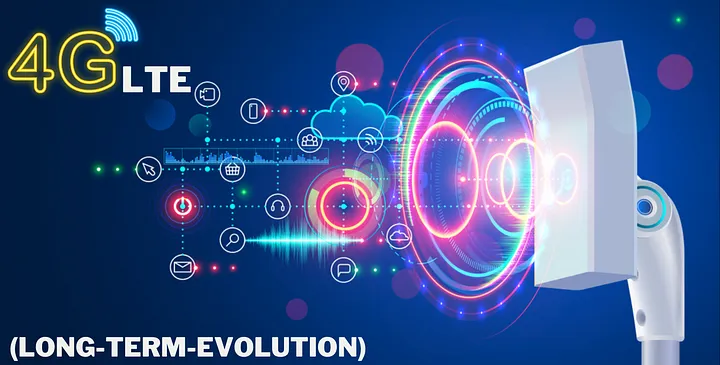Welcome to the Mobile POS in Retail Series, where we explore the fascinating world of Mobile Point of Sale (POS) and its crucial role in revolutionizing the retail landscape. In this introductory article, we will unravel the concept of Mobile POS, its application in the context of Retail, and the vital role that Local LTE plays in enabling its seamless implementation. Whether you’re a retailer seeking to enhance customer experiences, streamline operations, or adapt to changing consumer expectations, this series will provide you with the knowledge and insights you need. Join us as we embark on this journey to uncover the power of Mobile POS and its symbiotic relationship with Local LTE. From the basics to advanced technical considerations, we’ve got you covered. Let’s dive in and unlock the potential of Mobile POS in Retail.
- What is Mobile POS in the context of Retail?
Mobile POS, or Mobile Point of Sale, refers to the use of portable devices, such as smartphones or tablets, as a platform for conducting retail transactions. It allows sales associates to interact with customers, process payments, and manage inventory in a flexible and convenient manner.
- How does Mobile POS apply to local LTE?
Local LTE, or Local Long-Term Evolution, plays a crucial role in enabling Mobile POS in the context of Retail. By establishing a private LTE network within a retail environment, businesses can ensure reliable and secure wireless connectivity for their mobile devices. This network provides the infrastructure necessary for seamless data transmission, allowing Mobile POS systems to function efficiently.
- What roles does Local LTE play for Mobile POS in the context of Retail?
Local LTE serves several key roles for Mobile POS in Retail, including:
- Providing robust wireless coverage: Local LTE networks ensure consistent connectivity throughout the retail space, allowing sales associates to process transactions anywhere within the store.
- Enhancing data security: By establishing a private LTE network, retailers can protect sensitive customer information and payment data, reducing the risk of breaches or unauthorized access.
- Facilitating real-time inventory management: With Local LTE, Mobile POS devices can communicate directly with the store’s inventory management system, enabling accurate, up-to-date information on product availability.
- Enabling seamless customer engagement: Sales associates can use Mobile POS devices connected to Local LTE to access customer profiles, provide personalized recommendations, and enhance the overall shopping experience.
- What are the use cases of Mobile POS in Retail?
Mobile POS offers a wide range of use cases in the retail industry, including:
- Queue-busting: Sales associates equipped with Mobile POS devices can reduce wait times by processing transactions on the sales floor, eliminating the need for customers to queue at traditional fixed checkout counters.
- Clienteling: By accessing customer profiles and purchase history on Mobile POS devices, sales associates can provide personalized recommendations, targeted promotions, and a more tailored shopping experience.
- Pop-up stores and events: Mobile POS enables retailers to set up temporary sales locations, such as pop-up stores or kiosks, with minimal infrastructure requirements, expanding their reach and enhancing customer convenience.
- Inventory management: Mobile POS devices connected to a Local LTE network facilitate real-time inventory updates, allowing retailers to track stock levels, manage replenishment, and reduce instances of out-of-stock items.
- What is the mechanism behind Mobile POS, and why is it required?
Mobile POS relies on the convergence of several technologies, including wireless connectivity, secure payment processing, and integrated software applications. Its mechanism involves the use of mobile devices equipped with dedicated POS software and hardware peripherals, such as card readers or barcode scanners. This combination allows retailers to streamline their operations, improve customer service, and adapt to the evolving expectations of modern shoppers.
- How does Mobile POS benefit retailers and customers?
Mobile POS offers numerous benefits for both retailers and customers. For retailers, it improves operational efficiency, enables faster checkout times, increases sales opportunities, and provides valuable data insights. Customers, on the other hand, experience enhanced convenience, personalized service, reduced wait times, and a seamless shopping experience.
- What challenges does Mobile POS face in terms of connectivity?
Connectivity can be a significant challenge for Mobile POS systems, especially in large retail environments with multiple floors or areas with poor cellular coverage. However, by implementing a Local LTE network, retailers can overcome these challenges by ensuring reliable and consistent connectivity throughout their stores.
- How does Local LTE address connectivity issues for Mobile POS?
Local LTE addresses connectivity issues by establishing a dedicated wireless network within the retail space. This private network provides strong and reliable coverage, eliminating dependence on public cellular networks. It ensures a stable connection between Mobile POS devices and the back-end systems, enabling seamless transaction processing and real-time data synchronization.
- What are the advantages of using Local LTE for Mobile POS?
Local LTE offers several advantages for Mobile POS in Retail, including:
- Enhanced reliability: By having a dedicated network, retailers can ensure consistent connectivity, reducing the risk of transaction failures or delays.
- Improved security: Local LTE networks provide a secure infrastructure for transmitting sensitive customer information, protecting against potential data breaches or cyber threats.
- Lower latency: The low latency of Local LTE enables faster data transfer, enabling real-time inventory updates, quick payment processing, and responsive customer interactions.
- Scalability and customization: Retailers can tailor their Local LTE networks to suit their specific needs, expand coverage as required, and integrate additional technologies to enhance their Mobile POS capabilities.
- How does Local LTE support other retail technologies beyond Mobile POS?
Local LTE not only supports Mobile POS but also serves as a foundation for other emerging retail technologies. It enables seamless integration with IoT devices, such as smart shelves or beacons, facilitating real-time data collection and analysis. Additionally, Local LTE can support applications like digital signage, mobile apps, and employee communication tools, enhancing overall store operations and customer engagement.
By understanding the significance of Mobile POS in Retail and the role of Local LTE in supporting its implementation, retailers can unlock new opportunities for growth, operational efficiency, and customer satisfaction. In the subsequent articles of this series, we will delve deeper into the technical aspects of Local LTE deployment, network optimization, security considerations, and the integration of Mobile POS with other retail technologies. Stay tuned as we equip you with the knowledge to harness the power of Mobile POS and Local LTE for your retail business. Stay tuned!




